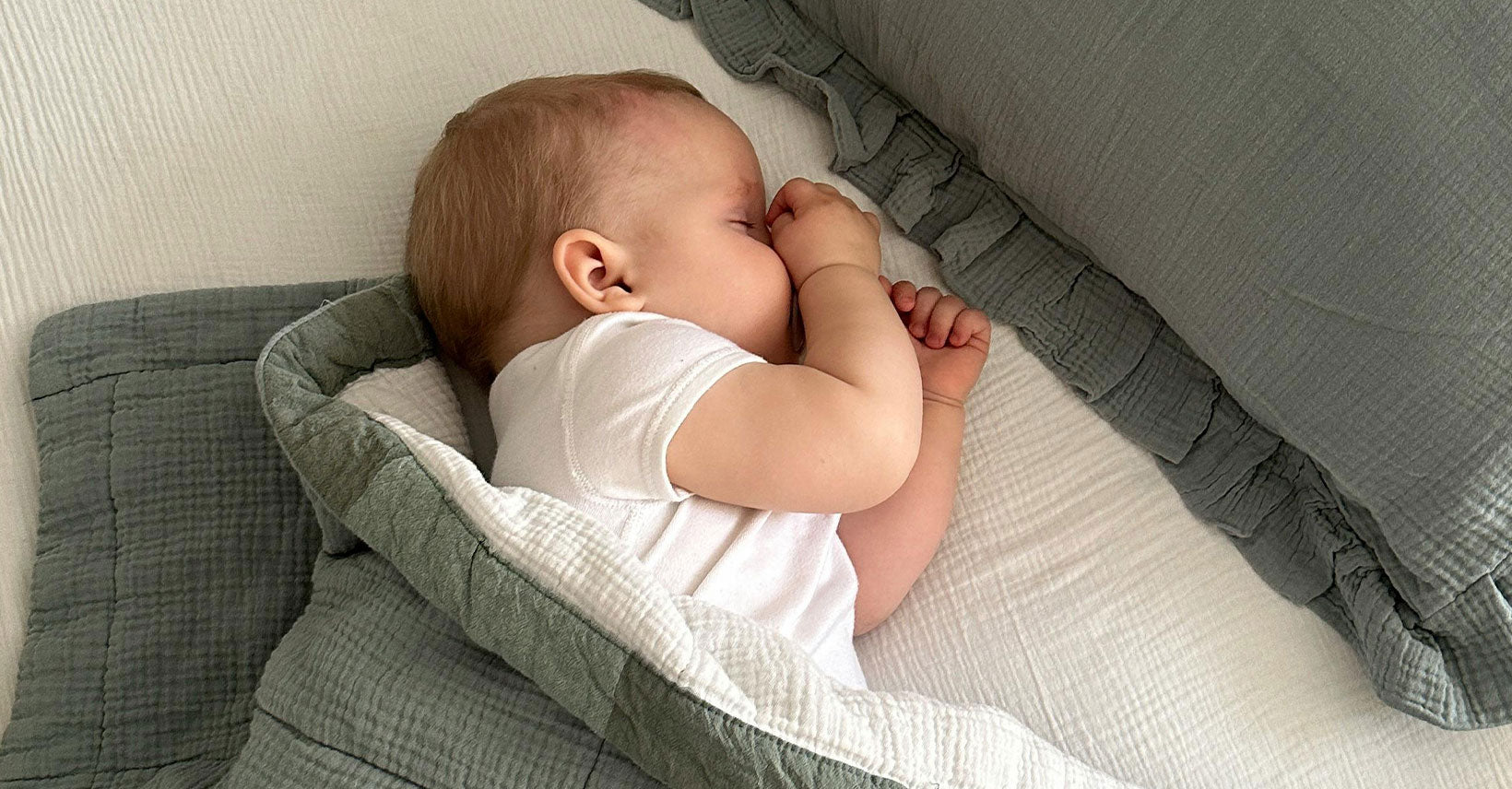


Many parents wonder if their babies dream while they sleep. Although babies spend a lot of time in rapid eye movement (REM) sleep, which is the main time adults dream, scientists are not entirely sure if babies experience dreams in the same way.
Since infants can't describe their thoughts in words, we can only guess based on brain activity and sleep patterns. However, sleep plays an important role in their growth and development.
The question of whether infants dream remains a mystery. Infants spend most of their sleep time in rapid eye movement (REM) sleep, which is the stage in which adults dream. However, researchers are not sure if infants dream-like adults.
Dreaming involves the processing of experiences, emotions, and memories, and infants have limited life experiences and are still developing, so it's hard to know what their brains might be processing. Although their brains are active during rapid eye movement sleep, it is unclear whether they are dreaming or simply undergoing brain development.
It is possible for babies to experience sleep similar to REM sleep in the womb. Studies have shown that unborn babies spend a lot of time in this active stage of sleep during the third trimester. However, it is not known if they are actually dreaming.
Because dreaming is associated with processing experiences and memories, and unborn babies don't yet have external experiences, it's hard to say what they'll be dreaming about. Most likely, their brain activity during REM sleep is more about development than actually dreaming.
There is no definitive answer to when babies start dreaming because scientists can't directly measure babies' dreams. Dreaming in adults is associated with processing experiences, emotions, and memories, but babies' brains are still developing. Infants do spend a lot of time in rapid eye movement sleep, which is associated with dreaming in adults, but it's not clear when or if they start experiencing dreams like older children and adults. Some researchers believe that as infants grow and become more experienced, they may begin dreaming in late infancy or early childhood.
Infants sleep longer than adults during REM sleep, the sleep stage during which older children and adults dream. Newborns can sleep up to 50 percent of the time during REM sleep, while adults usually sleep only about 20-25 percent.
The more time of REM sleep suggests that infants may have more opportunities to dream, scientists aren't sure if they actually dream more than adults. Since dreaming is associated with processing experiences and infants are still developing, their REM sleep may have more to do with brain development than actually dreaming. As they get older, their REM sleep decreases and becomes more similar to adult sleep patterns.
It's hard to know exactly what babies dream about. Because they don't have the language or experience that older children and adults have, their dreams may be different.
Some researchers believe that if infants dream, their dreams may be more emotional, involving shapes, sounds, or basic emotions, because their brains are still developing and just beginning to understand the world around them. However, without memories or complex thoughts, their dreams are less likely to be like those of adults. For now, much of what goes on in an infant's mind during sleep remains a mystery.

Night terrors do not usually occur in infants, especially in the first few months of life. Night terrors are more common in older toddlers and preschoolers and usually begin around age 2 or 3. Night terrors occur during deep, non-REM sleep, and the child wakes up suddenly, usually acting scared or upset, but usually not remembering it the next day. Although infants may wake up frequently and appear fussy, this is usually due to hunger, discomfort, or a need to be soothed, not as in night terrors.
Ultimately, whether infants dream when they sleep is still an unsolved mystery. While infants spend a great deal of time in Rapid Eye Movement (REM) sleep, which has been linked to dreaming in adults, it is unclear whether infants dream, or whether their sleep is used for other developmental purposes.
As babies grow and their brains develop, they may begin to dream, but what these early dreams look like is unknown. For now, parents can rest assured that whatever is happening to their babies during sleep is contributing to their growth and health.

Lily Hou
An expert in sleep sack design, is a valued contributor to Kaiya Baby's blog. With a strong background in baby sleep bags and maternal care, she is highly regarded for her professionalism. Lily prioritizes baby comfort and safety in her designs, using high-quality materials. Her insightful articles on sleep bags have been featured in reputable publications and have gained a significant readership. Trust Lily to help you create a comfortable and safe sleep environment for your baby, backed by her proven track record in the industry.
Leave a comment
This site is protected by hCaptcha and the hCaptcha Privacy Policy and Terms of Service apply.